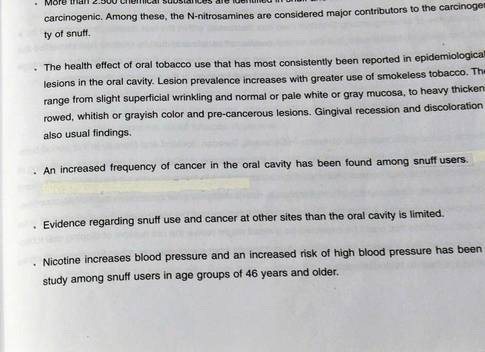DAVAO CITY -- The city council has approved a proposal that regulates use of electronic cigarettes and other nicotine-containing products, further strengthening its anti-smoking policy.
The measure, which has yet to be signed by Mayor Sara Z. Duterte-Carpio to become an ordinance, is an expanded version of the 2002 anti-smoking law. Authored by Councilor Tomas J. Monteverde IV, the proposed ordinance also imposes new requirements on the setting up of designated smoking areas in business establishments. It seeks to require business operators to secure permits for smoking areas from the local government’s anti-smoking task force. Such areas must be without walls and roofs and must be 10 meters away from the main establishment. The designated areas must have the sign "Smoking Area" and display graphic representations of the ill-effects of the vice. Under the current ordinance, businesses are only required to secure the approval of the City Engineers Office in the construction of smoking areas as part of the building plan. The anti-smoking ordinance carries a penalty of ₱1,000, or a month in jail, or both for the first offense; ₱2,500 and two months in jail for the second offense; and ₱3,000 with four months in jail for the third offense. The anti-smoking task force, headed by Dr. Domilyn C. Villareiz, is mandated to oversee the ordinance’s implementation. In an earlier interview, Ms. Villareiz said her group was pushing for the ban on electronic cigarettes in public places, but groups selling the item have opposed the proposal. Jasper Huang, a distributor of electronic cigarettes, the products supposed harmful effects have not been established. The city councilors, however, believe it is better to regulate the use of such products as non-smokers are annoyed at the smoke emission. In strengthening the campaign against smoking, Ms. Villareiz said it is important for "young people not to see their old folks smoking" even if it is only an electronic device.
0 Comments
The Rest of the Story: Tobacco News Analysis and Commentary ...Providing the whole story behind tobacco news. Wednesday, September 26, 2012 No IVF for Smokers or Overweight Prospective Parents in Fife According to an article in the Express, the National Health Service in Fife, Scotland is set to impose new rules by which couples will be denied in-vitro fertilization (IVF) treatment if either prospective parent smokes or if the woman has a body mass index of greater than 30. Fife is apparently the first health board in Scotland to dictate that both partners must be nonsmokers in order to be eligible for IVF, as well as the first to dictate that the woman must be within certain body mass index parameters. According to the article: "Dr Brian Montgomery, medical director of NHS Fife, said: 'Treatment criteria have been revised to improve the success of the treatment and the outcomes for mothers and babies. Both partners must be non-smokers and the female body mass index should be less than 30kg/m2.'" The Rest of the Story Well of course it will improve the success of the treatment and the outcomes if you limit the availability of the treatment to the healthiest couples. So why not also limit IVF to couples where both partners consume less than 150 grams of fat per day? And why just limit the BMI to 30? Why not set an age limit at 30 as well to improve the success and outcomes? While the Fife National Health Service is at it, why not also limit IVF to persons who have a body mass index of at least 20, as underweight is known to reduce fertility? And why prohibit IVF for women who consume five or more drinks of alcohol per week, since that has been shown to significantly reduce fertility? Other people who should not be eligible for IVF, in order to improve treatment success, include:
Revising the treatment criteria in that way would drastically "improve the success of the treatment and the outcomes for mothers and babies." Not only that, but waiting times for treatment would decrease precipitously and lots of money would be saved. Plus, population growth would slow, which itself would yield significant societal benefits. It would truly be a win-win situation for all involved.  September 22, 2012 The EU wants to ban E-cigs
SOURCE: http://www.ecigarettedirect.co.uk/ SOURCE: http://tobaccoanalysis.blogspot.fr According to a leaked memo highlighted in the tobacco analysis blog, and predicted in the past by this blog, the EU is likely to recommend a ban on electronic cigarettes shortly. The EU plans to ban the marketing of all nicotine containing products which have not been approved as a medicine. This, of course, includes electronic cigarettes. This is despite extensive research and scientific opinion that the device is likely to be many, many times safer than cigarettes. The EU will be well aware of this research after presentations made by the Electronic Cigarette Industry Trade Association (ECITA) in Brussels. --- The ban will come as no surprise to those who have followed the smokeless tobacco debate. Like e-cigarettes, the safest forms of smokeless tobacco is far, far safer than smoking tobacco, and there is decades of evidence to prove the point. And the EU has disgraced itself in its handling of the debate. In its effort to ban smokeless debate despite scientific evidence that smokeless tobacco is safe, the EU allegedly rewrote a report on smokeless tobacco removing all positive comments. When it became apparent that one positive comment had been removed, the agency was said to resort to tippexing (that’s white out for you Americans!) the final positive comment. (Source: Clive Bates, former director of Action on Smoking and Health) |
|
Vapeworld: Get Your Vape ON! All about Ecigs. |
|

 RSS Feed
RSS Feed